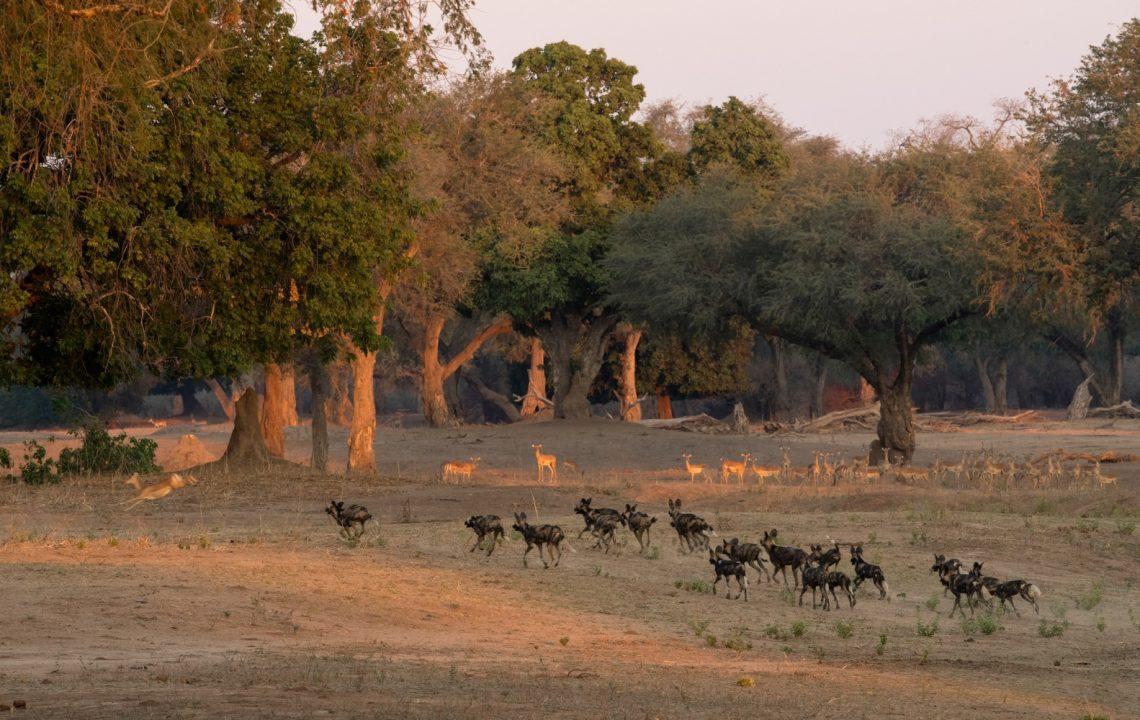
Submitted by Carmyn de Jonge on Mon, 27/07/2020 - 11:32
African wild dogs leave no one behind. The pack cooperates in taking care of their young, wounded and vulnerable. They work collectively to source food and ensure that everyone is nourished. The natural world is full of such remarkable examples of cooperative behaviour amongst social species, including ourselves.
We have built modern societies through collaboration and innovation. To address the critical challenges of our time, this spirit of progress calls on us to cooperate at unprecedented scales. Over the past several months, we’ve seen in many places every level of government, civil society, and individuals stand and act together to deliver impactful outcomes in response to Covid-19. From large scale measures such as sharing knowledge and medical equipment to develop a vaccine, to implementing measures at an individual level, such as self-isolation, physical distancing and mask wearing to mitigate this acute crisis. Like the African wild dog, we’ve seen some tremendous pack support at play, and through this global pandemic, we’ve also seen where a lack of cooperation can lead us.
So what of the seemingly chronic—and arguably substantially more dangerous—crises of climate change and biodiversity loss? How does the pack effectively contend with these challenges? The University of Cambridge Conservation Leadership Alumni Network’s editorial A call for collective crisis leadership, argues that existing leadership has failed to properly acknowledge these global environmental crises and respond with commensurate action. We propose that leadership at all levels of society can play a key role in addressing these chronic crises of our time.
As a network we have set out on a journey to ensure our collective local voices are heard at the global level. We believe that leadership is one of the most essential enabling conditions underpinning the outcomes of the new post-2020 Global Biodiversity Framework. As such, the Alumni Network submitted our joint position to the UN Convention for Biological Diversity (CBD) in February 2020, urging each party to:
- Acknowledge the biodiversity crisis and its underlying root causes
- Act urgently but leave no one behind, reduce consumption and evolve away from a GDP driven economy to one that reflects social and planetary well-being
- Establish appropriate accountability and benchmarking mechanisms, as well as milestones, for better implementation of the convention.
Building on this submission and the urgency of these global challenges, we define Collective Crisis Leadership as a systems thinking based approach to identify and tackle root causes of critical problems through inclusive interdisciplinary thought, decision-making and action across sectors.
When we reflect on social cooperation across the natural world, it’s important to remember that hunting success in African wild dogs is dependent on pack size and the role each individual plays in the collective effort. Running and chasing large prey as fast as you can, alone, will not necessarily deliver the required outcome, no matter how fast or clever you are. Leadership and cooperation is key to the pack’s success.
Unpacking and tackling the root causes of the ecological problems we are facing may be the greatest collective challenge our species has ever faced: to co-create and implement context-specific solutions. In addition, we need to put in place enabling conditions such as trust, and use all forms of knowledge—for example, through the inclusion of all stakeholders—from indigenous nations and grassroots organizations to governments, civil society and the private sector.
Now is the time to adopt a collective crisis leadership approach to influence the future of conservation and drive transformational and systemic change. As governments and leaders design the economic recovery packages of today, let’s collectively create a new normal, by engaging with national dialogues to implement a green recovery post-covid19 and build a stronger CBD Global Biodiversity Framework.
By shifting the focus from economic growth to resilience, we can act to integrate the principles of an inclusive, just and equitable recovery. With the right leadership, working at all levels and scales, we can systematically identify and overcome the barriers to implement solutions that protect and restore biodiversity, for our continued well-being and survival. Like the African wild dogs, we will only be successful if we work together on existential challenges while supporting our young and those most vulnerable, acting in synchronization, as one big, collective pack.
The editorial A call for collective crisis leadership is available in Oryx—The International Journal of Conservation
